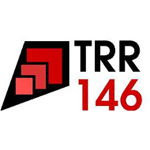
Seminar über Theorie der kondensierten Materie / TRR146 Seminar
Aug. 31, 2017 at
10:30 a.m.
in
Newtonraum, 01-122, Staudingerweg 9
F. Schmid
friederike.schmid@uni-mainz.de
P. Virnau
virnau@uni-mainz.de
L. Stelzl
lstelzl@uni-mainz.de
The dynamics of driven and active Brownian particles
Suvendu Mandal (University of Innsbruck)
While the linear response is well-characterized in terms of the fluctuation-dissipation theorem, few exact results are available for strong driving. Here we study the time-dependent velocity of a colloidal particle immersed in a dilute suspension of hard spheres in response to a step force switched on at time zero using Brownian dynamics simulations. Our main quantity of interest is the time-dependent mobility and its approach to the stationary state mobility. A stationary state solution for the mobility exact in first order of the packing fraction has been established earlier in terms of a power-series expansion with respect to the force on the tracer particle [1]. We extend this result to the case of arbitrarily strong driving including the complete time-dependence of the response upon switching on the force. We show that in the stationary state, our analytic solution recovers the anticipated limit for strong driving [1] and captures the response in first order of the packing fraction for any strength of the force.
We also investigate active colloidal hard-sphere glasses using Brownian dynamics simulations. While the properties of passive colloidal glasses are fairly understood over the years, not much is known for active colloidal glasses. In this talk we discuss the decoupling between active speed and rotational diffusion in colloidal glasses. These findings agree with theoretical predictions obtained by the mode-coupling theory of the glass transition.
[1] T. M. Squires and J. F. Brady, Physics of Fluids 17, 073101 (2005).